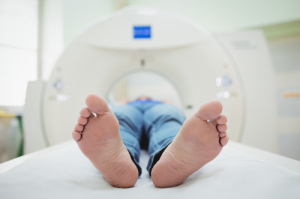por
Lauren Dubinsky, Senior Reporter | May 30, 2017

Shows promise in new study
Researchers in the U.K. and Peru developed a cardiac MR protocol called ultrafast CMR that’s three times faster and less than one-fifth the cost of standard CMR exams.
In Peru, only two public hospitals have CMRs — each performing 12 scans one day per week — and the five private hospitals with CMR charge $600 to $800 per scan. The public hospitals without CMR refer patients to the private hospitals, but it can take up to three months for the paperwork to receive approval.
The University College of London created the initial protocol and demonstrated that it can reduce average scan time from 60 to ten minutes.



Ad Statistics
Times Displayed: 194156
Times Visited: 5654 For those who need to move fast and expand clinical capabilities -- and would love new equipment -- the uCT 550 Advance offers a new fully configured 80-slice CT in up to 2 weeks with routine maintenance and parts and Software Upgrades for Life™ included.
The contrast agent gadolinium was then added to the protocol so that it was capable of detecting cardiac fibrosis and infarction and diagnosing cardiovascular diseases. A pilot study of 50 patients at UCL found that each scan took 15 to 20 minutes.
For the Impact of Noninvasive CMR Assessment (INCA)-Peru study, which is the most recent analysis, the ultrafast CMR protocol was tested on patients at two hospitals in Peru over the span of two days. The patients included 100 with suspected cardiomyopathy and 11 healthy controls.
The researchers found that each ultrafast CMR scan took an average of 18 minutes and cost $150. In addition, CMR was shown to have an impact on the clinical management of 33 percent of patients — revealing new, unsuspected diagnoses in 20 percent of them.
The INCA-Peru researchers plan to study the patients for two years to determine the impact that ultrafast CMR has on long-term morbidity and mortality. If they find it has long-term benefits on prognosis, they will seek support from the Peruvian government to offer ultrafast CMR at more hospitals in the country.

